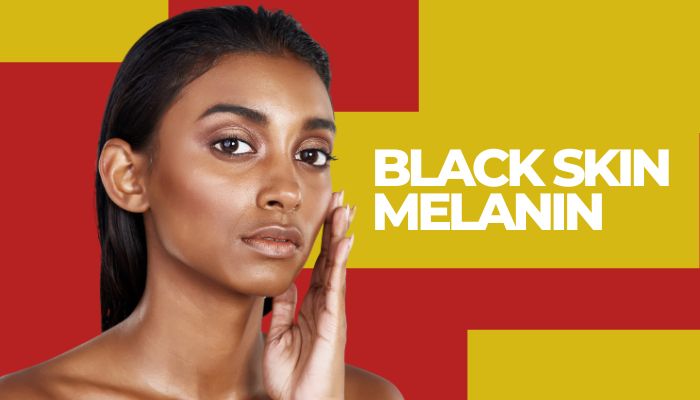The substantial amount of melanin in black skin determines skin color, provides UV protection, and is essential for your skin’s ability to adapt to environmental changes.
The distinctive beauty of black skin is a result of melanin in the skin.
Understanding the significance of melanin can help you appreciate the natural diversity that exists in human populations all over the world.
Also Read: How Many Black People are in Russia?
What is Melanin?
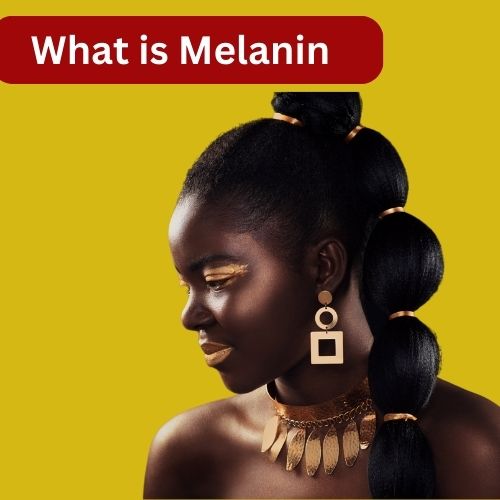
Melanin is a dark brown to black pigment that exists in your hair, skin, and iris. It’s also present in animals. Melanin is responsible for tanning your skin when you spend time in the sun.
When you expose yourself too much outdoors, the sun’s ultraviolet rays can burn your skin and reduce its elasticity, leading to premature ageing. However, black skin, which has a significant amount of melanin, protects the skin from the sun.
The presence of melanin in human and animal skin varies by degrees, which is responsible for the color of your hair, eyes, and skin
Three types of melanin?
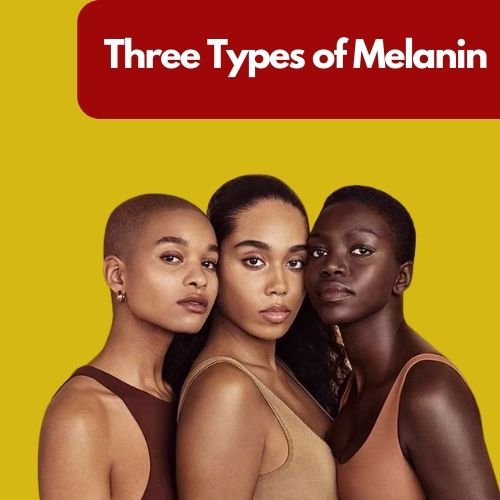
Melanin comes in three varieties, including:
Eumelanin
Eumelanin determines the dark color of your skin, eyes, and hair. Eumelanin has brown and black pigments. You can have both pigments of eumelanin in varying amounts.
If you however, have a small amount of brown eumelanin with no presence of black eumelanin, you’ll have blonde hair.
This explains why blonde hair is rare among black people.
Pheomelanin
Pheomelanin gives a pinkish color to your lips, nipples, and navel. If you have an equal amount of eumelanin and pheomelanin, you’ll have red hair.
Neuromelanin
Neuromelanin (NM) is a dark polymer pigment produced in specific locations in the brain. This is responsible for the colors of your neurons.
How Does Melanin Protect the Skin?
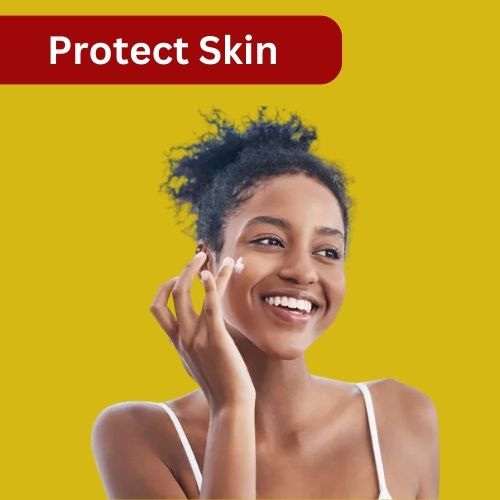
Your body produces more melanin when you are exposed to the sun for a while. The compound redistributes the light that is absorbed by UV rays toward the top layers of your skin after it has been refracted.
Through its ability to block harmful UV rays, melanin also safeguards the genetic material that is stored in your cells.
However, you need to protect your skin from UV rays while outdoors with sunscreen, as melanin alone can’t protect your skin.
What are the Effects of Melanin Deficiency?
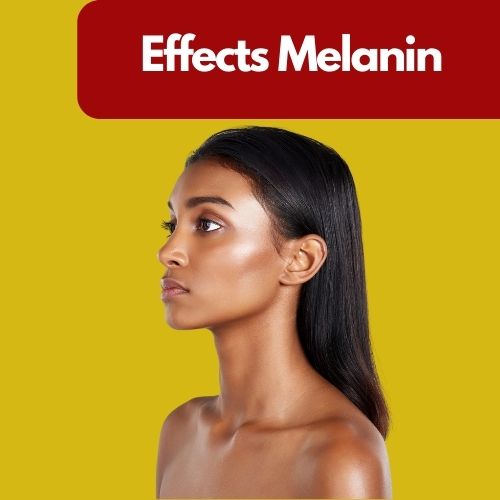
When your body doesn’t produce enough melanin, there are a number of melanin disorders that will be visible. The following are the most common.
Vitiligo
When vitiligo affects your skin, your skin pigments change from dark to white patches. This is a result of your immune system destroying the presence of melanocytes. Since vitiligo appears whitish, it’s more visible in black people.
Albinism
The result of a small amount of melanin is albinism. If you have albinism, your skin pigment looks pale. You’ll also have white to light-brown hair and blue eyes. You also have a risk of vision loss and sun damage.
Melasma
If you have melasma, you’ll have brown or blue-grey patches on your face or arms. This condition may be caused by hormones, exposure to the sun, or birth control pills.
Prescription creams, laser skin resurfacing, or chemical peels can help lighten the dark patches.
Skin Damage Following Pigment Loss
Sometimes, after an ulcer, blister, burn, or infection, your skin doesn’t replace melanin in that area. What you need to do when this happens is leave that area alone, or, you can apply makeup if you’re uncomfortable.
Hearing Loss
Melanin is present in the stria vascularis of your inner ear. This means, in the absence of melanin in this area, it’s likely you’ll experience hearing loss. As such, if you have little melanin, you have a higher risk of hearing problems.
Parkinson’s Disease
Parkinson’s disease is a disorder of the central nervous system that gets worse with time. As you get older, your brain’s neuromelanin typically increases. Brain cells in the substantia nigra, however, die when you have Parkinson’s disease. Neuromelanin decreases when this occurs.
3 Facts About Black Skin
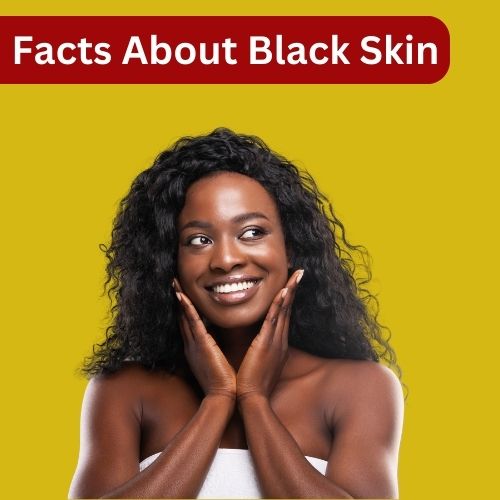
Protects the Skin
Due to its higher melanin content, black skin has a natural sun protection factor of 13.4, which is equivalent to sunscreen. Only 25% of that amount of protection from the sun’s rays is present in white skin. Its barrier of defense has an SPF of 3.3.
Low Signs of Sign Damage
Signs of sun damage on black skin appear gradually or hardly at all. However, more melanin also increases the likelihood of uneven spots that may be lighter or darker than the surrounding skin.
Ages the Skin Slower
One of the main components of your bones, skin, hair, muscles, tendons, and ligaments is a protein called collagen. The plump, youthful appearance you have is due to collagen, which prevents your skin from sagging.
Black people have a significant amount of collagen, which causes black skin to age slower. However, too much collagen is the reason why black people’s scars take longer to heal, with some forming keloids.
Why Do Black People Look Younger?
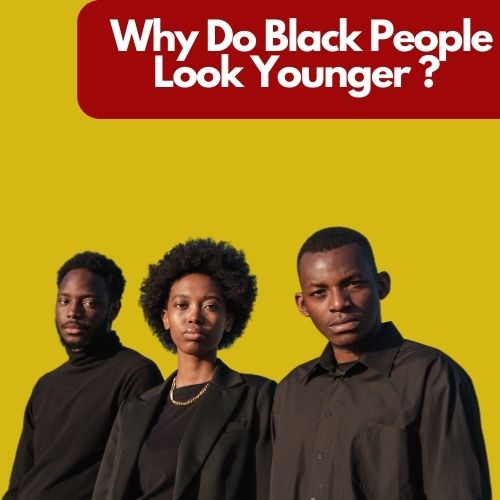
Black people, especially women, grow younger and have a later onset of fine lines and wrinkles compared to white women of comparable age.
It’s about the high amount of collagen in black skin and the effect of UVA rays. Collagen fibers in black skin are smaller, tighter, thicker, and organized into bundles.
Additionally, melanin serves as a kind of overcoat, shielding these bundles from the harm that UV rays do when they enter the skin.
So black skin stays intact, young, and firm for longer. As a result of the scarcity of readily accessible protective melanin, the collagen in white skin is significantly more vulnerable to UV deterioration.
Now It’s Your Turn
Black skin melanin is a remarkable biological trait that greatly influences how your skin looks.
The presence of melanin enhances your ability to protect your skin against the harmful effects of ultraviolet radiation, decreases your risk of skin cancer, and preserves your collagen and elastin better.
What’s the most interesting thing about your black skin?
Read Related Articles:
